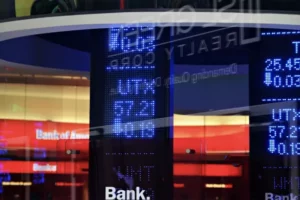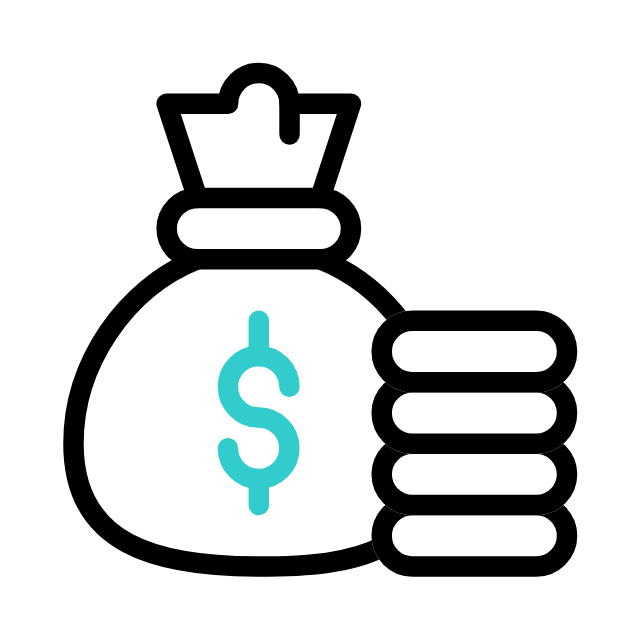
Get Your Lost Funds Back with Money Recovery Experts
Have you ever lost money due to fraud, scams, or other financial issues? If so, you’re not alone. Many individuals face the frustrating and stressful
Here is how it works

Assess your situation
Based on our expertise, we conduct initial evaluations to determine your case’s potential for a significant recovery.

Collect the necessary documentation
Thoroughly gathering all the necessary information and documentation essential for effectively pursuing your case.

Engage with the relevant parties
Methodically engaging with the pertinent entities responsible for facilitating the unauthorized transfer of your assets.

Get Your Money Back
We take immense pride in our proven track record and assure you that we will spare no effort in our pursuit to recover your funds.

Here at Sullivan & Cromwell, we want to make sure you know everything there is to know in regards to forex scams and fraud. While our primary job is to help recover financial loss for clients who have been scammed or being involved in some kind of fraud, ideally we want to help you avoid these scams in the first place. So be vigilant and knowledgeable.
Forex is the single largest traded market globally, with up to five trillion traded each day and is considered decentralized because there is no central processor for trades– in other words, there is no entity that acts as a central exchange like the NASDAQ or the NYSE. Instead, orders are completed by millions of traders using millions of various forex brokers around the world.
Foreign currency trading is one of the most leveraged markets in the world as well. In the US, regulations limit a person to 50:1 leverage. In other countries, they have zero limits on leverage. It is not uncommon to see some non-US brokers offer 1000+:1. Due to these factors and a few others which we will discuss, this is why scams can be so prevalent within the foreign exchange market.
Is forex trading a scam?
In the investment world, forex is the wild-west of traditional financial instruments. However, most of the participants are massive institutions like banks that help companies manage cross-currency rates for payroll or buying goods. But it is by far the most accessible and cheapest investment for anyone to make. A futures broker may require a $5,000 minimum investment; whereas many firms in the foreign exchange markets require as little as $1. Day trading stocks in the US requires a $25,000 minimum balance; forex does not require this.
The ease of access to significant leverage, and the fact it is open 24 hours a day all make it the most appealing market. But this also attracts many of the bad actors. Some countries regulate forex markets – but not always to the same degree as the US. Many countries have little to no regulation and allow anyone to open a brokerage account in their country. There are many, many bad brokers around the globe – so it’s often best to stick with brokers that are based in the US, EU, or UK.
Key points
How to spot a forex scam
The scams that exist in the investment world are many. One of the hardest things for new and aspiring traders to overcome is the vast amount of wrong information, bad actors and blacklisted scam brokers trying to take advantage of you.
Here are some of the different types of forex trading scams:
Broker’s Leverage
Broker’s spread
Signal Sellers
Broker spam
Educational services
Automated Trading or Artificial Intelligence (Bots or Robots)
Flashy advertising or false lifestyles
When Bitcoin and others became a tradable market, there were few exchanges that were available. As time went on, more and more exchanges popped up. But not all of these cryptocurrency exchanges were legitimate. Many were fronts that looked and appeared to be a place to buy and sell cryptocurrency. The owners of the exchange would wait until a significant amount of people deposited and even began to trade on their platform until the owners would essentially pull the plug and take your cryptocurrency investments. Along with cryptocurrency exchange scams is the lack of security of some cryptocurrency exchanges. The most infamous example of this occurred in 2014 when Mt. Gox (which processed over 70% of all traded Bitcoin) had 850,000 Bitcoins stolen (millions of dollars). Regarding fake cryptocurrency exchanges, there are some that use fake volume to artificially inflate the trading volume and liquidity of the exchange. While this activity is still prevalent, a form of self-policing in the industry exists with the website coinmarketcap.com classifying every cryptocurrency exchange as those with honest reported volume or dishonest volume.
Fall prey to a cryptocurrency scam? how you can get your money back
How do I recover funds from a forex scam?
Recovering funds in the forex trading market is difficult. The difficulty increases when you use an unregulated broker. Adding to the problem is the near impossibility of recompense from the scammers who defrauded you.
But we at Sullivan & Cromwell have a proven track record of success in helping investors who have been the victims of a scam or fraud. We are a regulated fund recovery company that focuses on some of the more complicated financial investments: forex, binary options, cryptocurrency, and stocks.
In addition to our professional forex recovery services, our team of experts focuses on customer outreach and we attempt to mitigate the damage that fraudulent actors have caused to our clients.
Contact us today for a free consultation and our professionals will work with you throughout the entire process to get you maximum returns!
No – but there are scams and fraudsters that create pyramid schemes. This kind of behavior exists everywhere and is endemic to all traded financial markets. If you are looking for a broker and they’re offering to put you into a ‘team’ to build a network, odds are it’s a pyramid scheme. Read our related article: What is a pyramid scheme and how to avoid them
Several major regulatory bodies/agencies around the globe regulate forex markets. In the US, brokers are regulated by the NFA (National Futures Association) and the CFTC (Commodities Futures Trade Commission) – but not FINRA (Financial Industry Regulatory Authority). In the UK, the main regulatory body is the FCA (Financial Conduct Authority). In the EU, all nations that make up the EU have their respective regulatory agency– but the standards that each member State must maintain are established in the MiFID (Markets in Financial Instruments Directive).
Great question! One of the first signs that the broker you are looking at is legitimate is if they disclose that they are registered with a specific regulatory authority such as the FCA (UK) or CFTC (US). Another great way to determine legitimacy is to read reviews by current and former customers.

Have you ever lost money due to fraud, scams, or other financial issues? If so, you’re not alone. Many individuals face the frustrating and stressful

If you have lost funds due to investment scams, fraudulent activities, or identity theft, you may be feeling overwhelmed and helpless. However, there is hope.

Have you been a victim of fraud or financial misconduct? Are you struggling to reclaim your lost funds? The process can be overwhelming and frustrating,
Website Menu
Contact us
Our office hours
Mon-Fr: 10:00-19:00 GMT
Sat – Sun: Closed
125 Broad St, New York, NY 10004 , USA
Disclaimer: Sullivan & Cromwell does not charge for directly securing funds or facilitating their recovery. As a cyber research and consultancy firm, we do not offer claim management, legal services, investment advice, or asset recovery. While we may conduct research to assist in scam cases and provide intelligence to help trace criminals, we do not guarantee the retrieval of funds.
Sullivan & Cromwell never makes unsolicited calls. We only engage with clients who have contacted us first.
Additionally, the company does not accept or engage in prohibited payment methods.